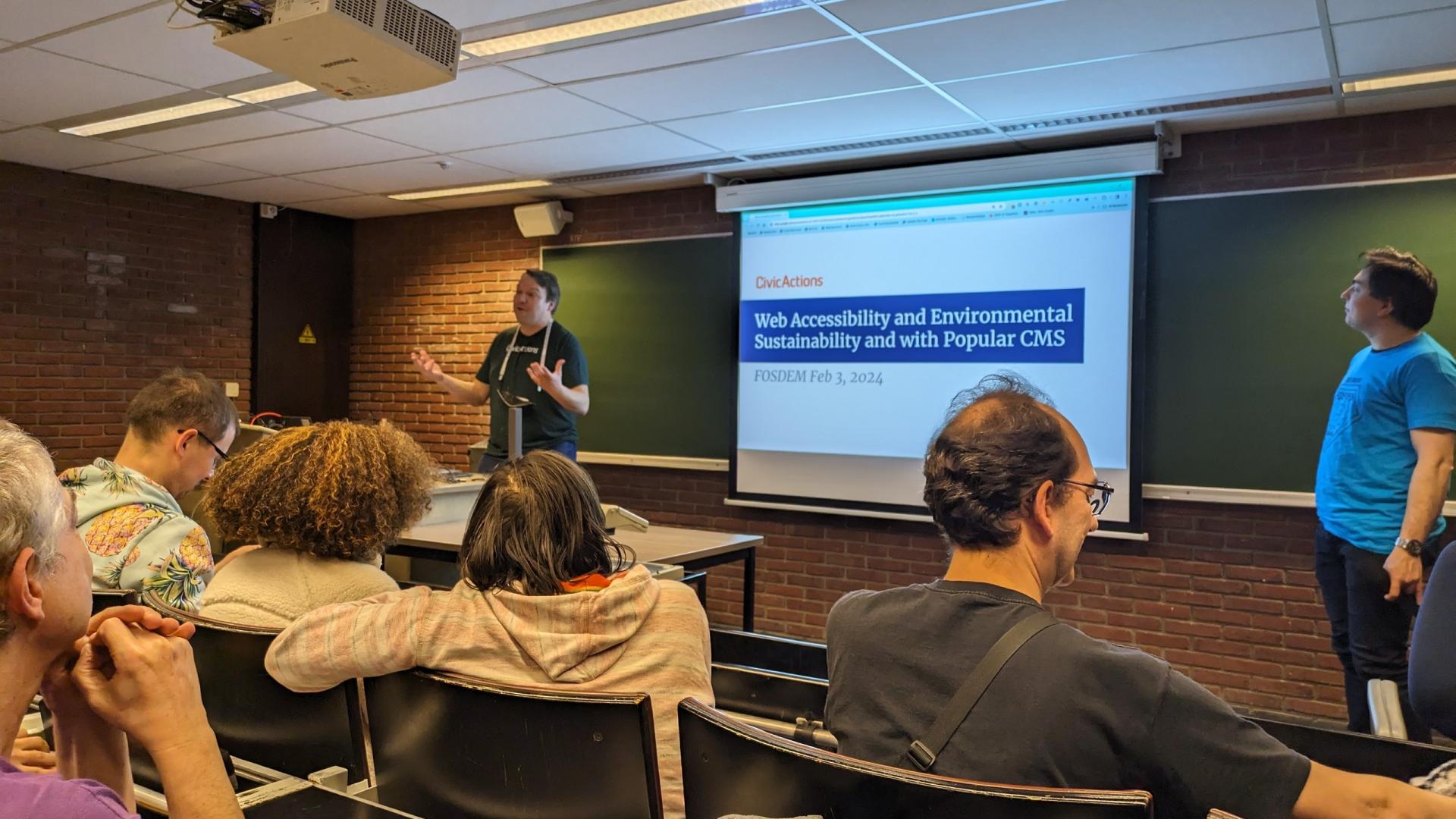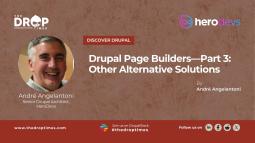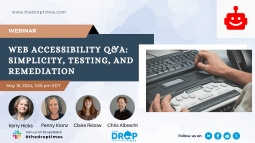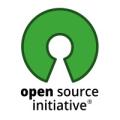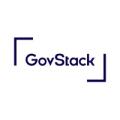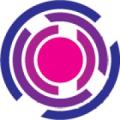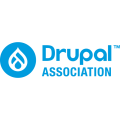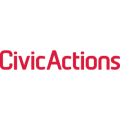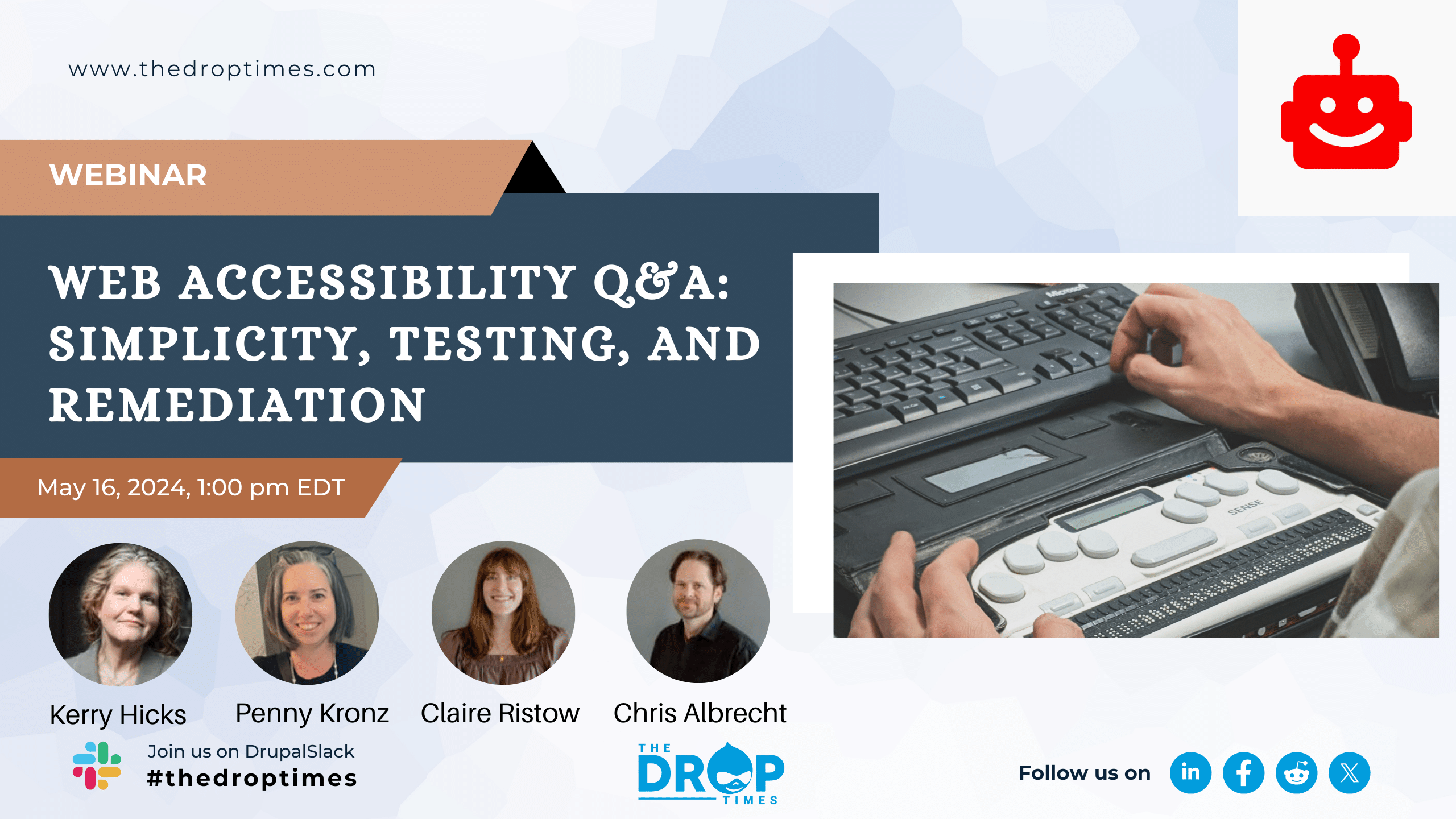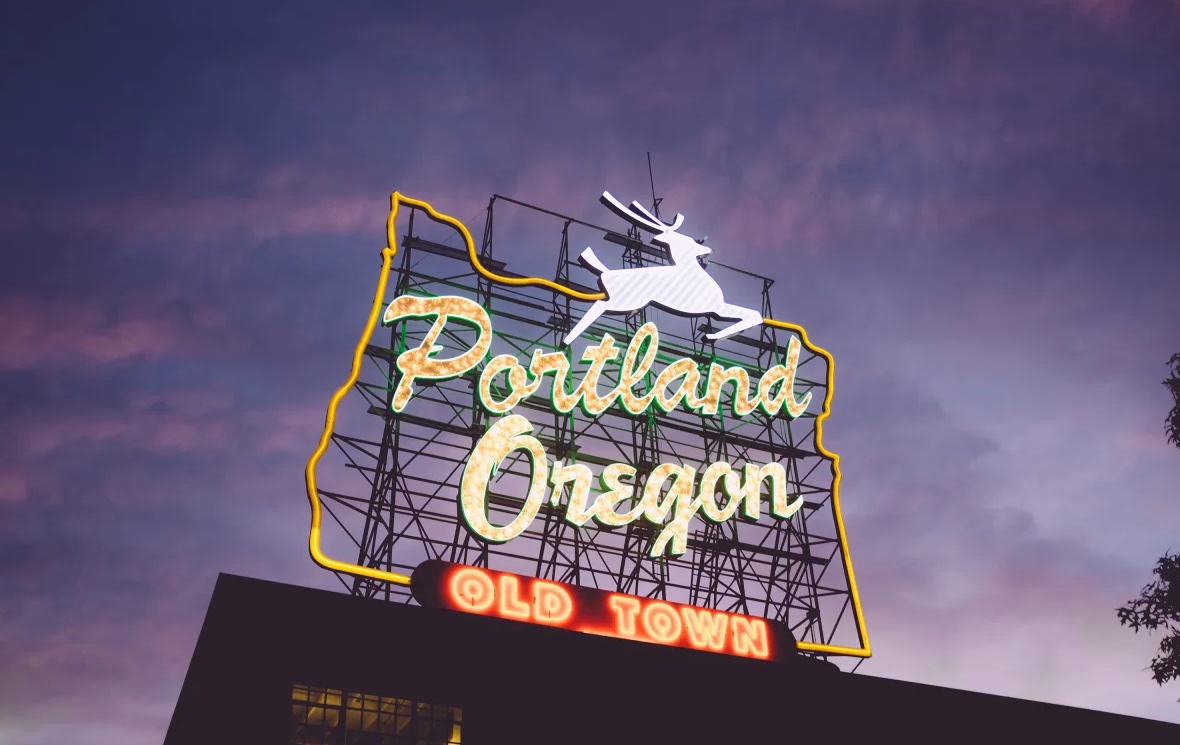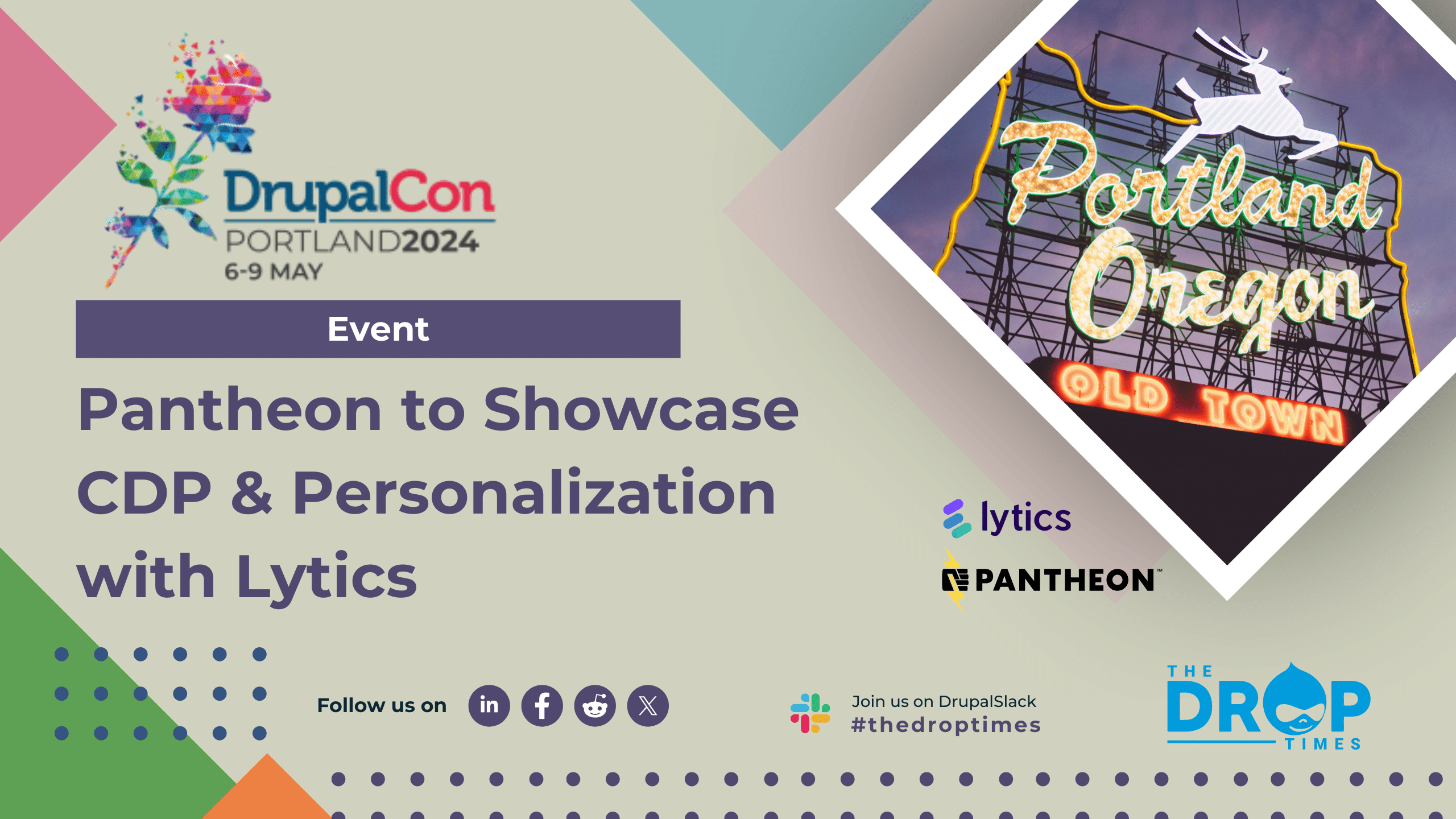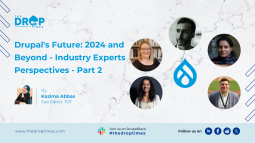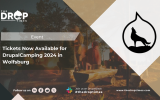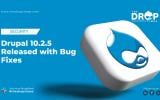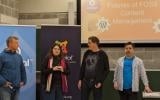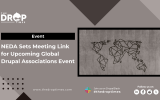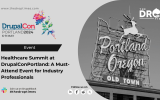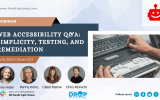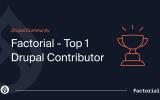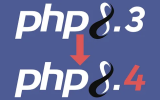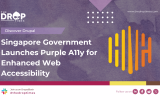The Future of Open Source, Digital Government and Drupal at FOSDEM
I was happy to be able to present at FOSDEM, the largest open-source conference in the world. 'CivicActions' has been attending it for years as it is a great place to connect with people from other open-source communities. It allows us to learn more about strategies that work (or don’t) from the international open-source community.
This year, I was particularly interested in learning more about how governments around the world are improving efficiencies and access with interoperability and standards compliance, as well as building trust with increased security, transparency, and accountability by using open-source solutions.
At FOSDEM, people discuss everything from specific JavaScript libraries to home automation. There were talks from individual innovators, tech companies, and several government agencies.
Drupal Lunch at FOSDEM
In a community, it often takes one person to bring folks together. This time, Angie Byron noticed that there were several folks from the Drupal community coming for FOSDEM. It would be a unique opportunity to bring folks together and have an in-person lunch. With some logistical jujitsu, we could all meet on Saturday at a delicious dim sum restaurant not too far from the conference. Although not everyone was still engaged in Drupal, it was nice to talk over lunch with folks I’ve spent so many hours with at other conferences.
There is so much that we can do virtually, but it is important from time to time to cement those relationships by sharing food together and talking about stuff beyond the issue queue.
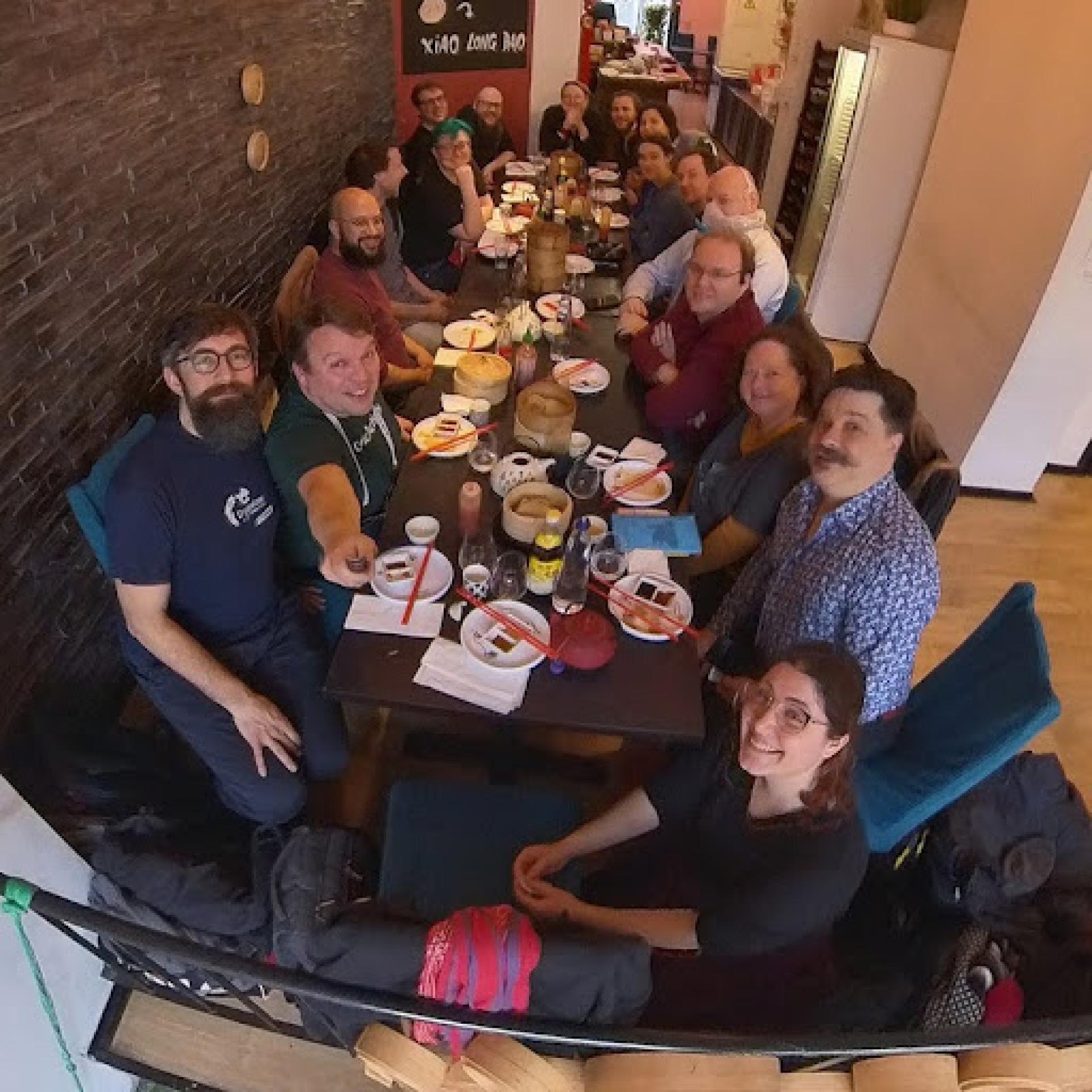
My Talks
I spoke in two tracks on Saturday afternoon. In the Collaboration and Content Management track, I spoke about 'Web Accessibility and Environmental Sustainability and with Popular CMS.' Later in the day, I also spoke in the Public Code and Digital Public Goods track on 'What can Digital Open Source Projects do to Reduce our Environmental Footprint.' The former talk was a 45-minute presentation, and the second was 5 minutes and in a session of lightning sprints.
Both presentations are available online, and people can view them there.
Public Code and Digital Public Goods
The call for participation for this track went out to folks interested in open source and its role in the public good. They wanted folks engaged in Digital Public Goods (DPGs) and government projects—folks involved in better governance, sustainability, and more. I missed the discussion on the Standard for Public Code, but it was the context for many of the government presentations.
I watched two talks from the European Commission and three from the French Government. Both have been advocating open-source lately. Seeing announcements about European Regulators listening to the open-source community at FOSDEM was encouraging. More governments are getting involved in leveraging and contributing to open-source projects.
Jacob Green’s talk on the upcoming UN’s OSPO4Good UN Event looked fascinating. Open source clearly aligns with the UN’s Sustainable Development Goals, but there hasn’t previously been any real effort that I’ve seen to unite the two. UN Member States are now encouraged to leverage open-source technologies for sustainable development. The UN encourages organizations to form Open Source Program Offices (OSPOs) to build open-source strategies, policies, and guidance. They should support the growth of the use and contributions to open source in a way that can grow inside an organization. The UN is looking to build on their 2023 conference, but this time, they are meeting in NYC. There is a call to have open-source organizations participate.
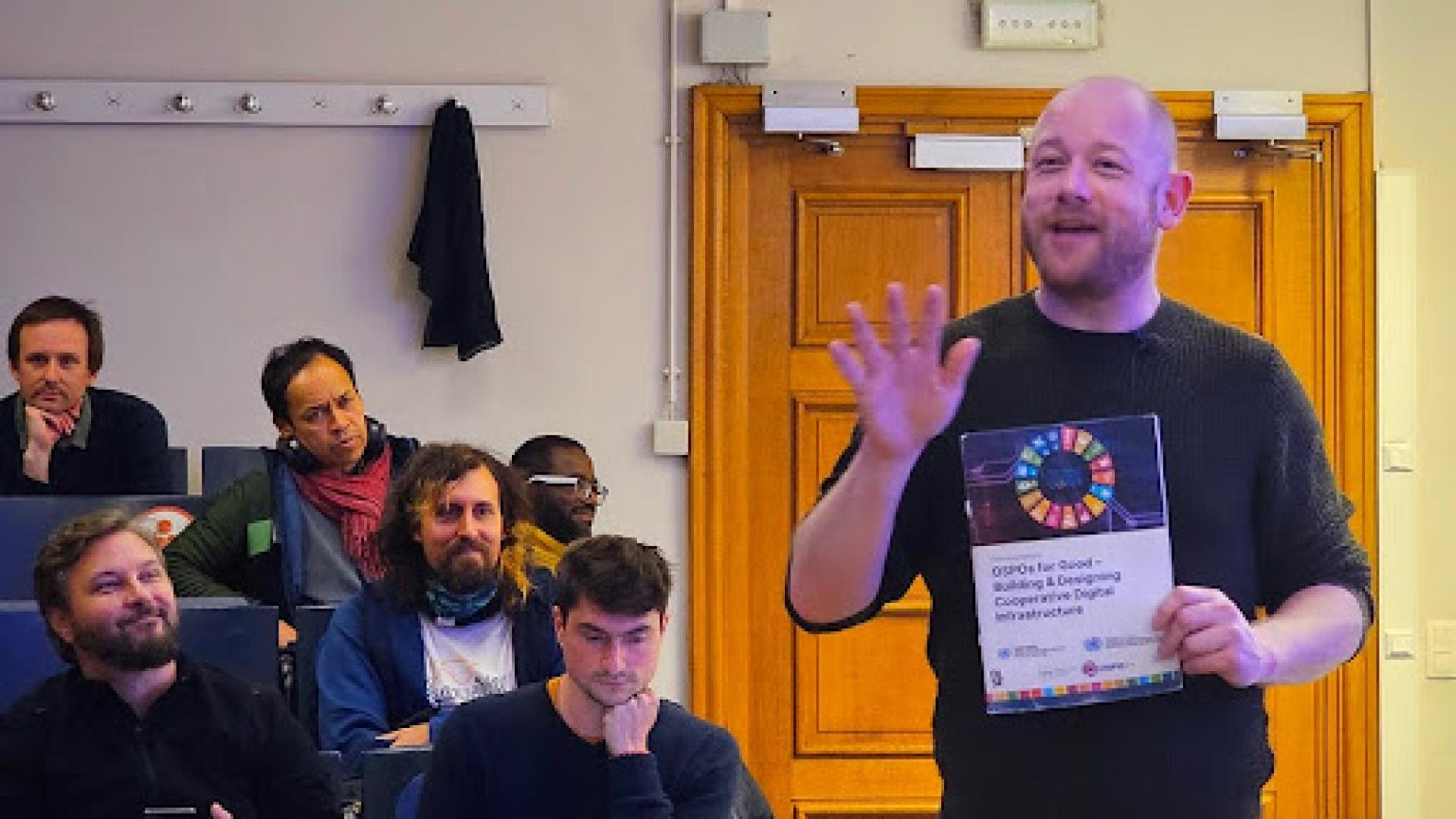
It was interesting to see the views on how open source could transform government. The European Commission invests in government innovation through open-source solutions like the Legislation Editing Open Software (LEOS). There was also a presentation about OpenFisca, which was initially developed by the French government and is now being implemented by several other governments worldwide. This rules-as-code approach has proved quite successful, particularly in showing which benefits citizens are entitled to receive.
There weren’t a lot of talks in this session specific to Drupal or CMSs, but it is worth noting that OpenFisca is being implemented with Drupal in Australia & New Zealand. There are more articles about this on The DropTimes.
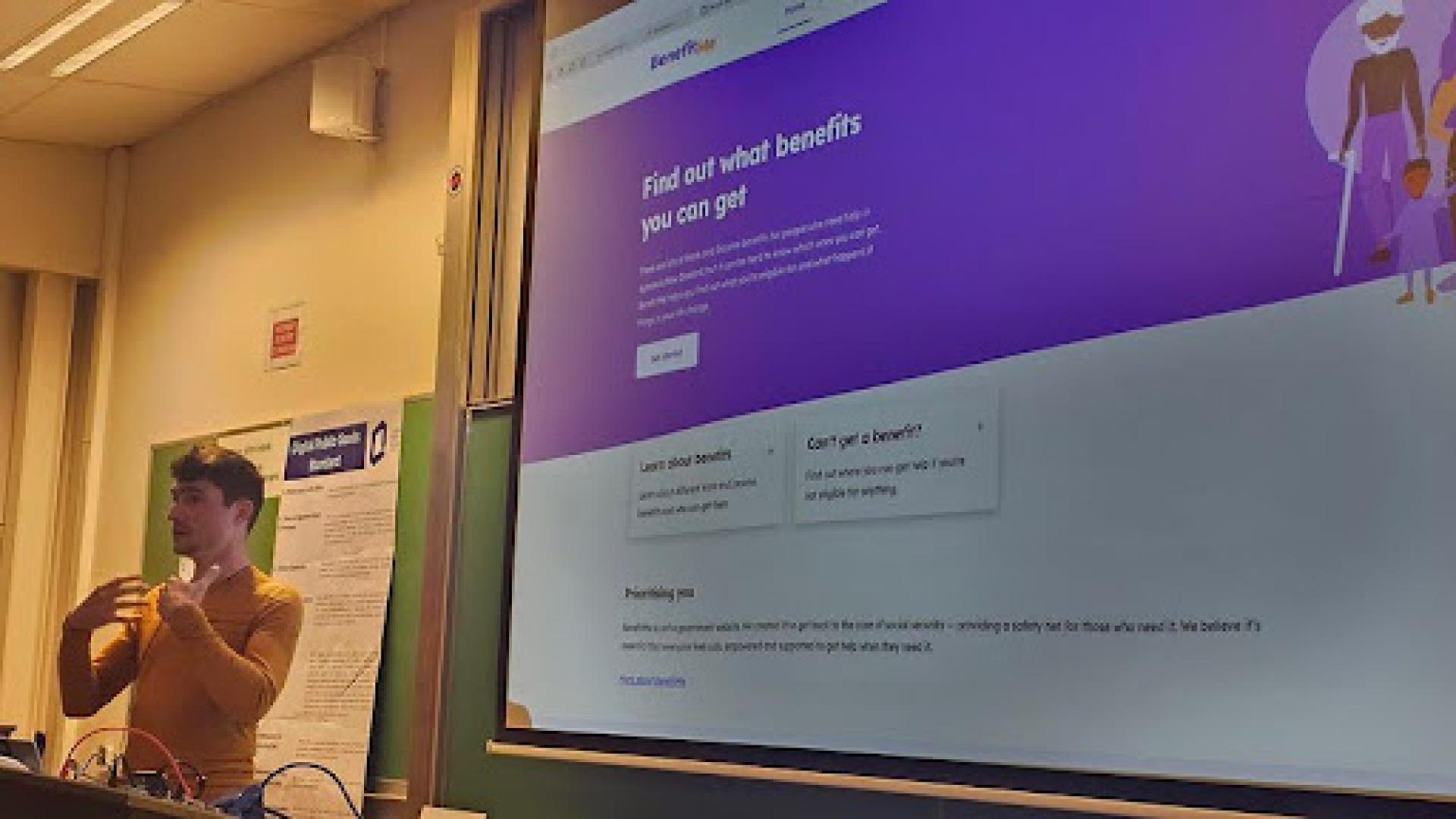
Open Website Alliance
Sunday’s talks were mostly filled with discussions about the Open Website Alliance. Jeffery 'jam' McGuire and Mathias Bolt Lesniak (Typo3) were both at DrupalCon Lille promoting this event before the track was approved at FOSDEM. Fortunately, it all came together, and there was a very interesting series of presentations on Designing Futures of FOSS Content Management with the Open Website Alliance.
The first session I saw was Breaking Barriers: Content Management Systems and Accessibility. It was a great introductory session on accessibility led by someone with a disability. I do try to attend accessibility sessions when I can because I know that they just aren’t as sexy as a talk on something like AI. Accessibility is an issue that affects anything with a user interface, so there is a common need in all CMS to learn more about digital accessibility.
I also saw Owen Lansbury from PreviousNext and the Drupal Association Board present on 'Wrestling Giants: How can Free Open-Source CMSs Remain Competitive with Enterprise Clients?' Owen did a terrific job highlighting how much more potential work there is for our communities. If we are visionary in our approach, we can strive for a much bigger piece of the pie.
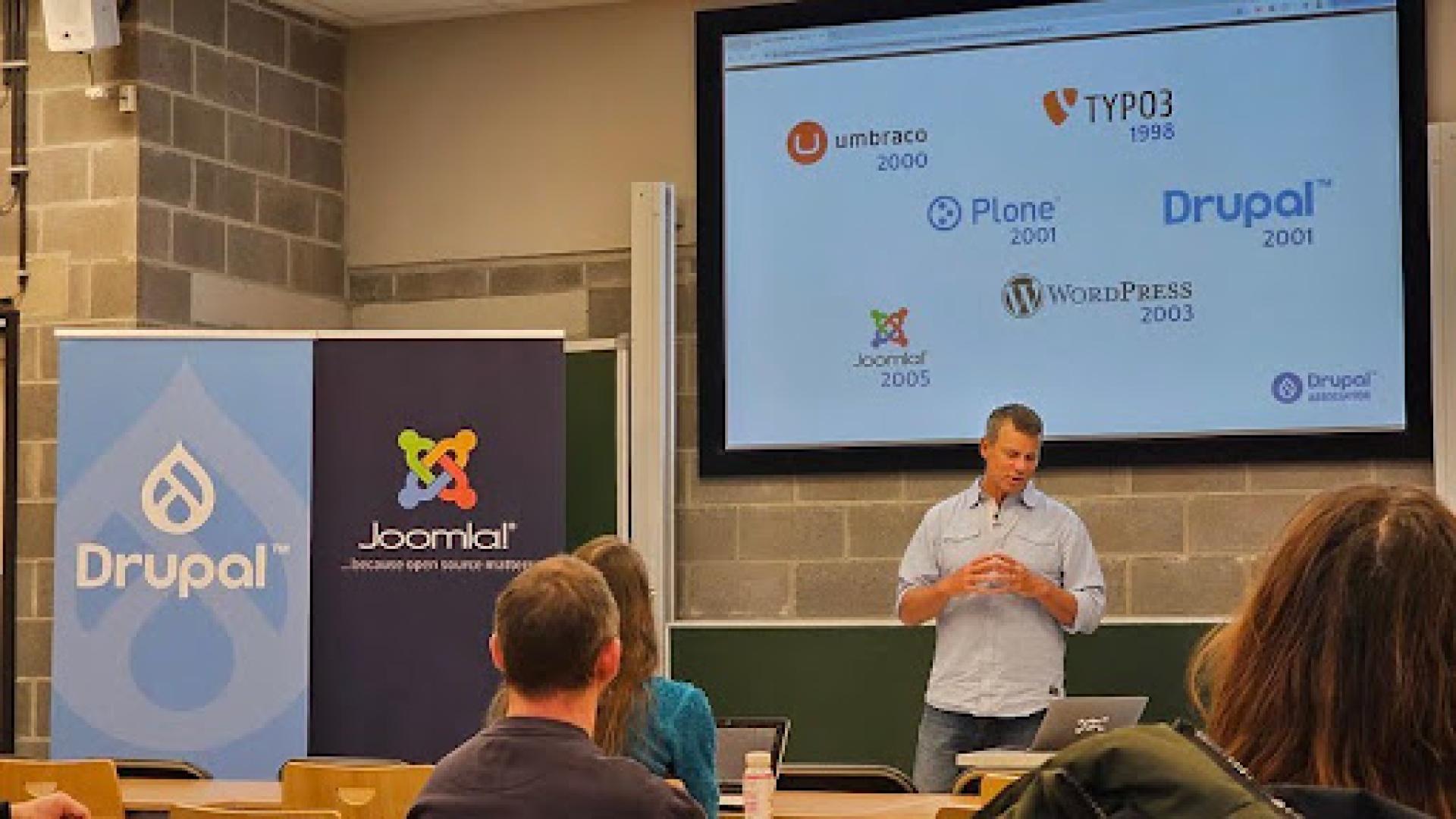
I also really enjoyed the Typo3 talk 'Collaborative Government Websites Standardization for Digital Sovereignty Using Open-Source—the Model of Rwanda and the GovStack Global Initiative.' In North America, it is rare for governments to think that they have anything to learn from the Global South. That said, the principles outlined in this talk highlight issues from which all governments can learn. I had heard of GovStack before but learned more about where this project is going and its implications for CMS like Drupal.
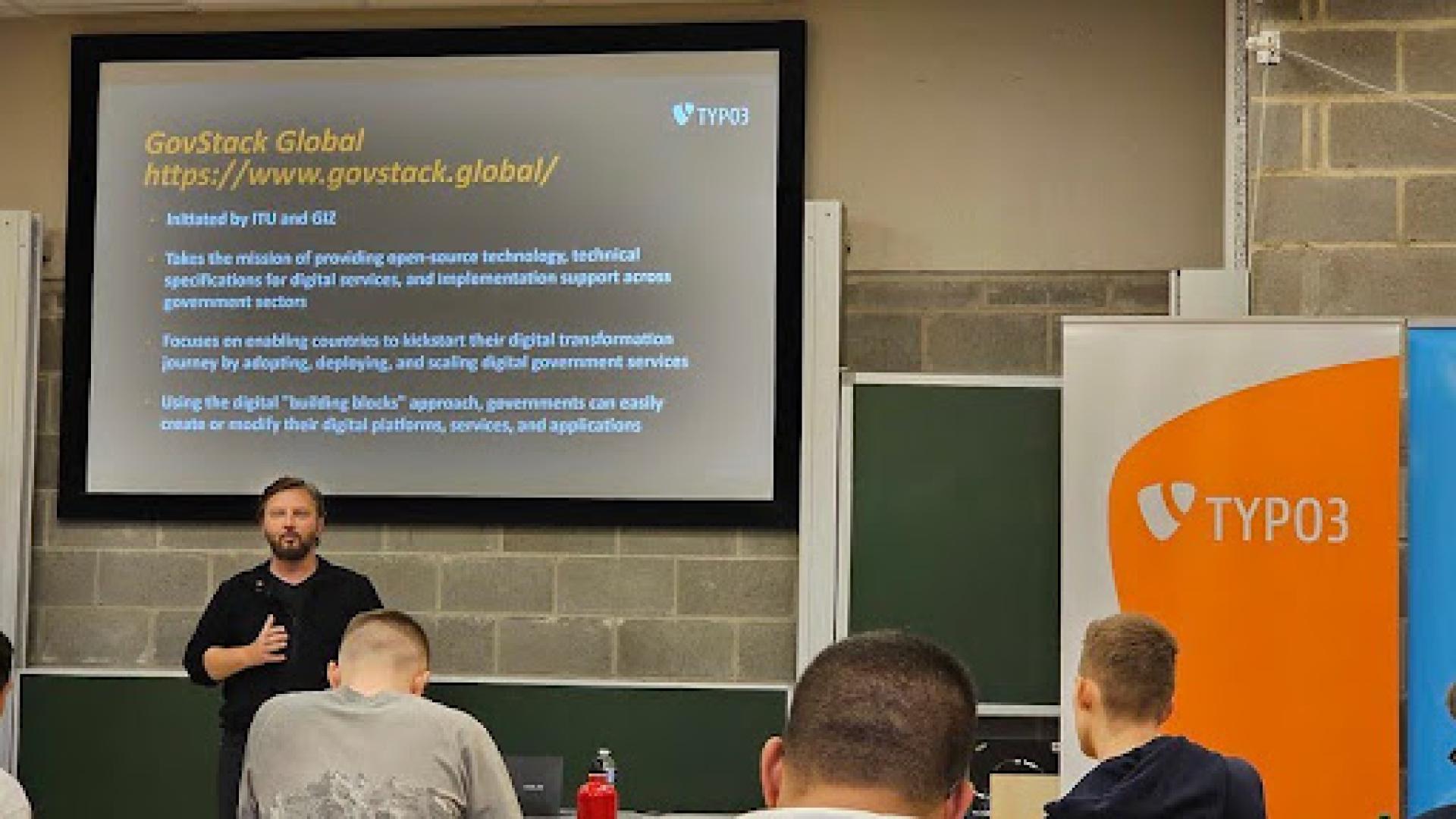
The final session I watched here was from the WordPress community, 'Shaping the Future: Investing Wisely in Long-Term Open Source Development with "Five for the Future".' This touched on the viability of open-source projects. The speaker explored different models to support open-source projects but came to build on Matt Mullenweg’s call from 2014 for 5% for the Future. What if agencies leveraging open source were expected to contribute 5% back (either in money or time) to the projects they use?
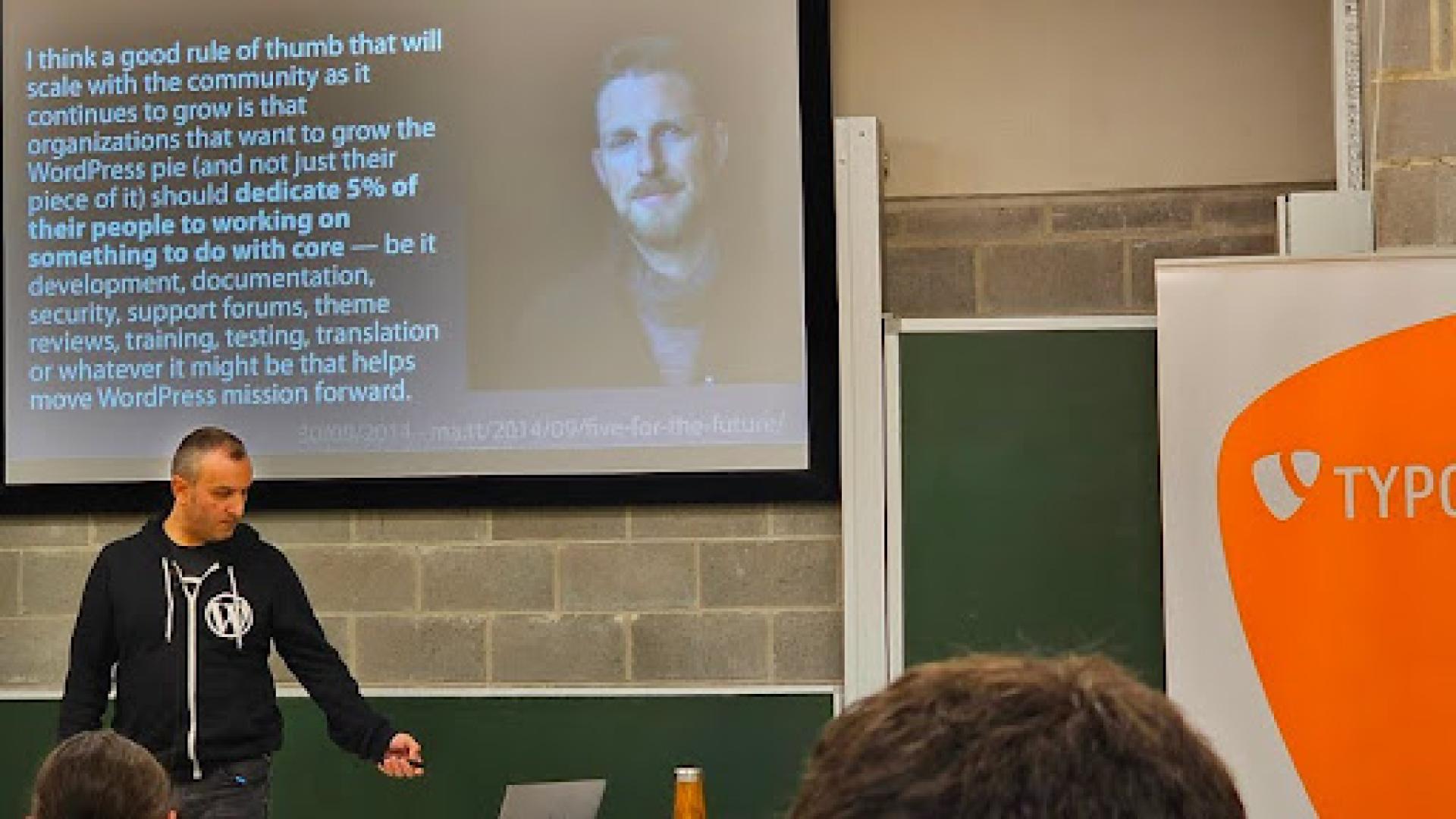
Last Session on AI and Open Source
I went to 3 AI talks while at FOSDEM, but the one that stuck out to me was the final session I caught, 'Moving a Step Closer to Defining Open-Source AI.' The slides are available; you can find a summary on the OpenSource.org blog. We do need to carefully consider what we mean when we talk about open machine-learning solutions. Stefano Maffulli did a good job outlining some of the considerations the Open Source Initiative makes to flesh this out for our community.
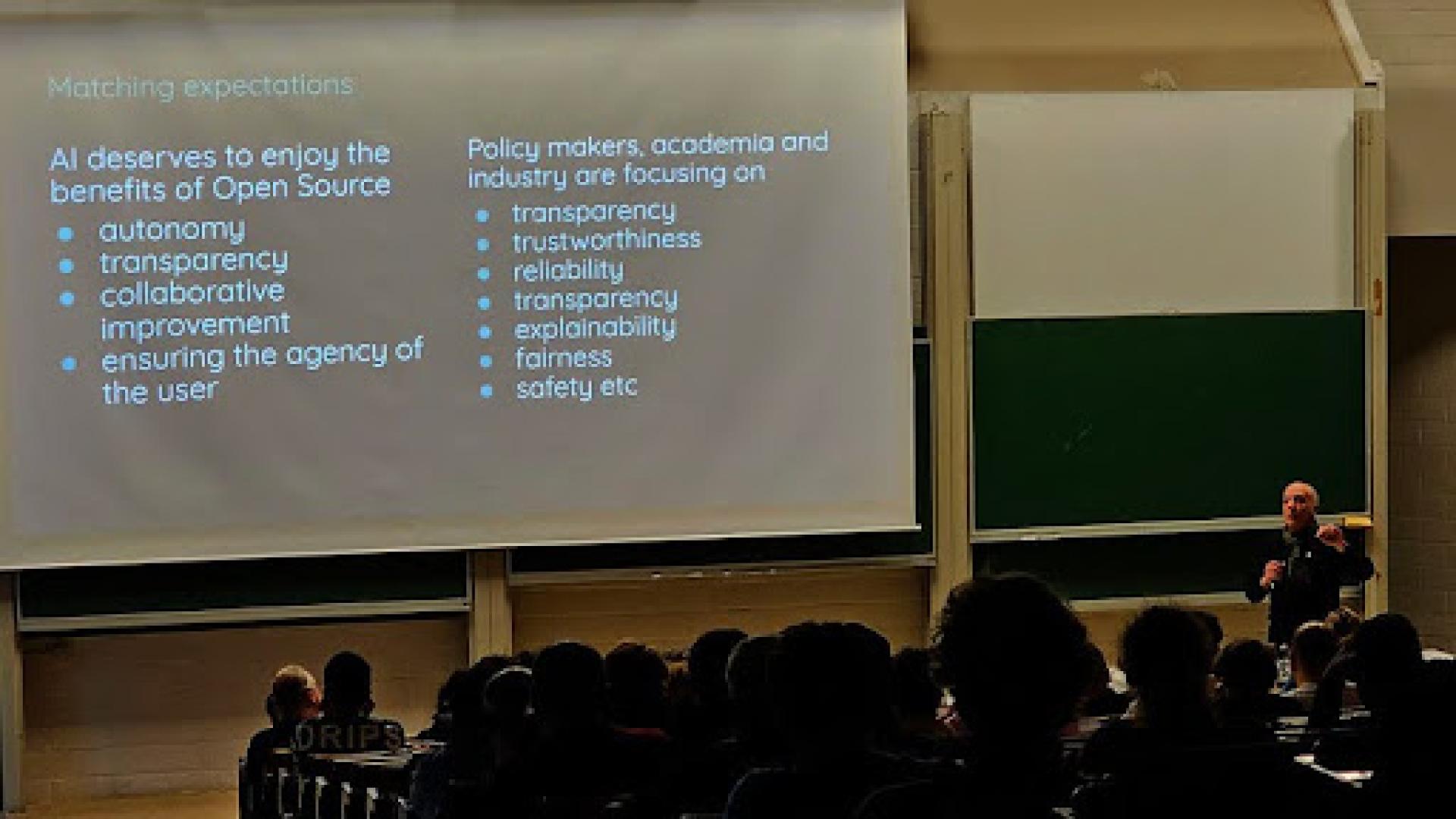
Conclusion
Our community can gain a lot by participating in broader conversations around open source and society. In conferences like this, ideas spark and are combined to help build a better world.
Please get in touch with me if you have any questions, especially about adopting open-source and open-culture practices in government.
Note: The vision of this web portal is to help promote news and stories around the Drupal community and promote and celebrate the people and organizations in the community. We strive to create and distribute our content based on these content policy. If you see any omission/variation on this please let us know in the comments below and we will try to address the issue as best we can.



